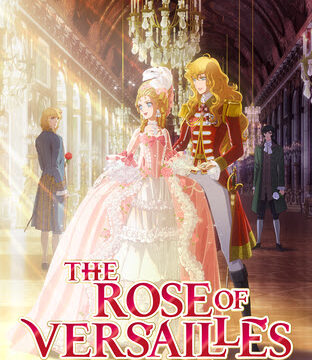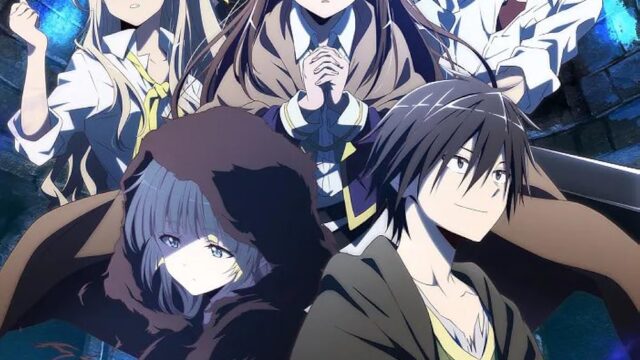English Dub Season Review: Yakuza Fiancé: Raise wa Tanin ga Ii Season One
Based on the Japanese manga series written and illustrated by Asuka Konishi, this twisted yakuza rom-com follows 17-year-old Yoshino Somei, who moves to Tokyo to live with the Miyama family and attend school after her grandfather—head of the largest yakuza group in Kansai—arranges her engagement to Kirishima Miyama, grandson of a rival yakuza leader, as part of a political truce. While Kirishima initially presents himself as polite and charming, Yoshino soon uncovers his disturbing true nature… What begins as a yakuza-arranged engagement, intended to solidify a political alliance, quickly spirals into a dangerous game of emotional manipulation and petty revenge, as Yoshino navigates the complex dynamics of family, power, and her newly established twisted relationship with Kirishima, who’s mere presence and unpredictable nature threatens to turn her life upside down…
The series is produced by Studio Deen and directed by Toshifumi Kawase, with Rika Takasugi handling series composition, Itsuko Takeda designing the characters, and Hiroaki Tsutsumi and Masato Suzuki composing the music. The opening theme song is “Under and Over”, performed by The Oral Cigarettes, while the ending theme song is “Nani Wararotonnen”, performed by the Japanese voice actress of Yoshino, Hitomi Ueda.
In a nutshell, Yakuza Fiancé is a show that tries to do two different things at once. A darkly comedic dysfunctional romance and an intense crime drama full of violence and petty ambitions. The core of the series revolves around the chaotic relationship between the two leads, Yoshino Somei and Kirishima Miyama. Yoshino, initially portrayed as a relatively harmless high school girl, who quickly proves her toughness and resilience when she gets caught in the dangerous world of yakuza. Kirishima, the male lead, is deeply flawed, with a borderline psychotic personality that creates an unpredictable dynamic between the two, as it’s driven by a blend of psychological manipulation, power struggles, and unexpected moments of vulnerability. While some of this might sound off-putting due to the twisted subject matter, the intensity and emotional depth of the characters more than make up for this with an engaging experience for those willing to embrace it.
The series presents a unique take on the yakuza genre, focusing not only on the violence and power struggles that typically define such stories but also on the personal and psychological aspects of the characters. Yoshino’s personal growth is particularly noteworthy. Although she starts as a seemingly innocent girl, her exposure to the yakuza world brings out a fiercer, more assertive side of her. She becomes a character who’s unafraid to confront her circumstances head-on and refuses to be manipulated, even by Kirishima’s Patrick Bateman-like charisma. This creates a dynamic of constant tension between the two, as Kirishima’s manipulative, unpredictable behavior clashes with Yoshino’s fierce independence and unwillingness to back down. Their relationship may be toxic, but it’s this very toxicity that fuels their compelling chemistry.
While the two leads shine despite their weird-ass dynamic, the supporting cast adds texture to the story, even if they don’t get as much depth. Tsubaki and Shouma, for example, provide brief but intriguing moments that add to the emotional weight of Yoshino’s journey. However, the story itself is more episodic, with the yakuza elements mainly serving as a backdrop for the characters’ interactions. The focus is less on deep political intrigue and more on chaotic, often absurd, scenarios where the stakes are high, but the narrative doesn’t always follow a logical progression. This creates a sense of unpredictability that makes the show both exciting and occasionally difficult to follow. Especially a Season Finale that ended so abruptly and at random, that it left me with more questions than answers.
Visually, the animation style fits its raw, unpolished vibe. Studio DEEN delivers serviceable motion with occasional stiffness, yet manages to capture emotional extremes through exaggerated expressions and dynamic framing, while the aesthetic matches the gritty, unpolished nature of the story, which works in its favor but may not appeal to everyone. Musically, the score does its job without calling attention to itself, with the real highlights being the opening and ending themes, which are stylish tracks that perfectly encapsulate the edgy flair it’s going for.
Overall, Yakuza Fiancé isn’t a polished romance or a refined crime drama—it’s a deliciously trashy guilty pleasure that dares you to embrace its chaos in the best possible way. It doesn’t pretend to be anything else and thrives on its messy extremes: toxic relationships, impulsive decisions, and brutal showdowns, all wrapped in a bold, bloody package. The relationship between Yoshino and Kirishima maybe toxic and sometimes comical, but it’s this very dysfunctional dynamic that makes the show so damn compelling. If Season 2 ever becomes a thing, I’d love to see what direction it takes these two crazy teens in the future.
























"There are also other characters that come and go (also owned by the Warner Bros. Discovery conglomerate media company)."
Huh. Is that just referring to other characters from the show itself, or is this implying that the new season is going to have cameos from other WBD IPs